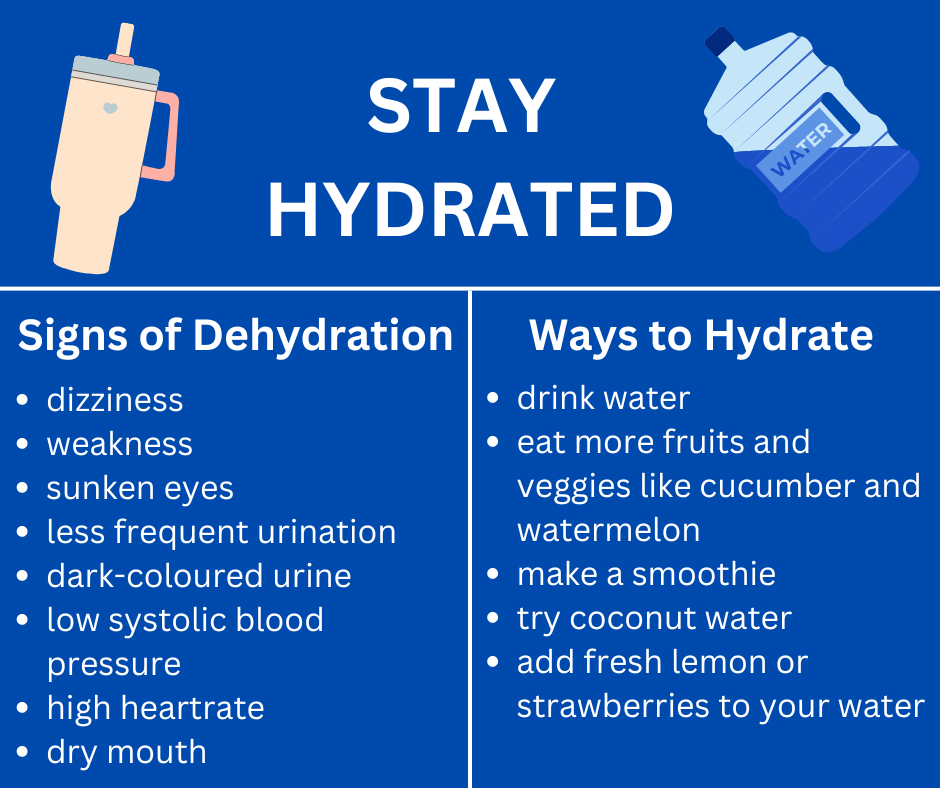Staying Hydrated This Summer
As summer approaches, we hope you have been enjoying the beautiful outdoors. The nursing team wants to remind you of the importance of staying hydrated, especially during the hot summer months. Dehydration is a common cause of hospitalization in older adults. Staying hydrated can help lubricate joints, maintain or improve cognition, and boost energy and mood. It can also normalize blood pressure, remove bacteria from the bladder, flush out the kidneys, and help detoxify the skin. It can even improve sleep!
Tips for Staying Hydrated:
- Drink Plenty of Water: Aim to drink at least 8 glasses of water a day. If you’re active or it’s particularly hot, you may need even more.
- Eat Hydrating Foods: Include water-rich foods such as cucumbers, watermelon, strawberries, and lettuce in your diet. These can help you stay hydrated and provide essential vitamins and minerals.
- Avoid Sugary and Caffeinated Beverages: Drinks like soda, coffee, and alcohol can dehydrate you. Opt for water, herbal teas, or natural fruit juices instead.
- Carry a Water Bottle: Keep a reusable water bottle with you throughout the day to make it easier to drink water regularly.
- Monitor Your Urine: The colour of your urine is a good indicator of hydration. It should be light yellow or clear. Dark urine can be a sign of dehydration.
Outdoor Activity Tips:
We encourage you to get outdoors; however, try to avoid physical activity when the humidex is 40 or higher due to the increased risk of heatstroke. Sit in cool, shady areas instead of under direct sunlight, and wear a hat if shade is unavailable.
- Timing is Key: Plan outdoor activities during the cooler parts of the day, such as early morning or late afternoon.
- Dress Appropriately: Wear light, loose-fitting clothing to help keep your body cool.
- Take Breaks: Take frequent breaks in the shade or indoors to cool down and hydrate.
- Use Sunscreen: Protect your skin from sunburn, which can contribute to dehydration.
Signs of Dehydration:
It’s important to recognize the signs of dehydration so you can take action promptly. Symptoms include:
- Thirst
- Dry mouth and skin
- Fatigue or dizziness
- Dark yellow urine
- Less frequent urination
- Confusion or irritability
If you experience severe symptoms such as fainting, rapid heartbeat, or confusion, seek medical attention immediately.
Staying hydrated is crucial for maintaining your health and well-being during the summer months. By following these tips and paying attention to your body’s needs, you can enjoy the season safely and comfortably.
